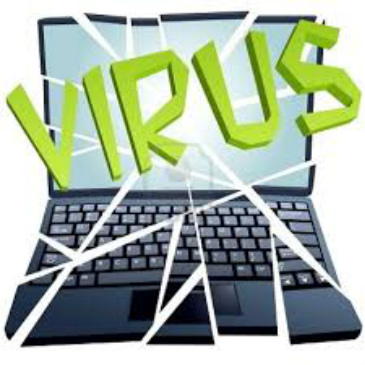Don't Let Viruses and Spyware Take Over Your Computer

Virus experts say over 40,000 computer viruses are now known to exist and about 200 new viruses are released into the internet each month. The internet has become the latest platform for criminals. This offense has become known worldwide as "Cybercrime". Cybercrime is all about stealing information and using that information to reek havoc in people's lives. Most cybercrimes are accomplished through the use of viruses, malware or spyware. Due to the rapid release of viruses, virus protection software companies are unable to respond with a defense in a timely manner. Therefore, when your computer is infected with viruses and spyware call the experts. Call ACPR.
For repair call
678-379-9534
For repair call
678-379-9534
Definitions:
- Virus - Software that can replicate itself and spread to other computers or are programmed to damage a computer by deleting files, reformatting the hard disk, or using up computer memory.
- Adware - Software that is financially supported (or financially supports another program) by displaying ads when you're connected to the Internet.
- Spyware - Software that surreptitiously gathers information and transmits it to interested parties. Types of information that are gathered includes the Websites visited, browser and system information, and your computer IP address.
- Browser hijacking software - Advertising software that modifies your browser settings (e.g., default home page, search bars, toolbars), creates desktop shortcuts, and displays intermittent advertising pop-ups. Once a browser is hijacked, the software may also redirect links to other sites that advertise, or sites that collect Web usage information.
Upgrade Your Hard Disk Drive (HDD) To A Solid State Drive (SSD)
|
|
Hard disk drives (HDDs) are primarily found in computers and laptops. Solid state drives (SSDs) are becoming more common in computers and laptops, and are also found in tablets, cell phones, portable drives and mp3 players.
Consider the familiar USB memory stick. A solid state drive is a larger, more sophisticated version of your traditional thumb drive. Like a memory stick, the SSD stores information on microchips and contains no moving parts. Meanwhile, a hard disk drive records information on a storage platter by moving a mechanical arm with a read/write head over a spinning platter. The platter inside the hard disk drive is coated with a magnetic media which records data in binary code (1's and 0's). A solid state drive does not contain magnetic coatings. Instead, SSDs rely on an embedded processor, or "brain", and interconnected flash memory chips that retain data even when no power is present. |
